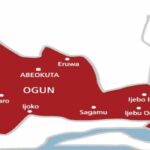
Over 20 years ago, a distant cousin graduated from university with a degree in English Language. The unemployment situation in the country then was not as bad as it has degenerated today, but it was still difficult to secure a job.
My uncle, his father, had suggested that he travel to Makurdi to meet with the then Deputy Governor under the then military administration who was also a relation, to help the young graduate secure a job with the state civil service. The boy boarded a taxi happily and headed for the capital city with dreams of landing a job. He was disappointed. When they ushered him into the deputy governor’s office, the man asked him the course of study he graduated in. The young man proudly announced in a heavy Tiv accent that he studied “ Inglish Longage”. The Deputy Governor flared up instantly and started fiddling with his purse to give my cousin transport fare to go back to the village. “When you went to study ‘Inglish’, what were you thinking? Where did you think you would secure a job? Supposed I employ you in my office, you would come here every day to speak and speak ‘Inglish’, and then we pay you at the end of the month?” He asked him in quick succession. Needless to say my cousin was embarrassed and speechless.
The Deputy Governor, like a joke, put him on the next taxi back to the village. This story is a highlight of the orientation on education in Nigeria which has always been (and still is) to enable the graduates secure white collar jobs. There is no conscious effort to build practical problem solving skills and entrepreneurship in the students. That is why thousands of graduates are turned out every year to chase very few jobs, in the midst of abundant and untapped resources and business opportunities in our environment. In the meanwhile, governments after governments keep mouthing their agenda to create jobs and tackle unemployment, without any significant achievements. The reason is simple; they have all failed to address the root causes of unemployment in Nigeria.
That is why you hear about fire-brigade programmes like “skill acquisition programmes” that don’t work. Why train a graduate for between 4 to 6 years , without him acquiring any skills, only for him to graduate, with a mindset of acquiring a job, only to be told, there are no jobs, therefore he should learn new skills? What was the degree programme meant to achieve if he would now have to start afresh with the learning of new skills? The absence of problem solving skills is not limited to the younger generations alone. It is endemic even among the older generation, in whose hands the fate of the Nigerian nation has been committed for decades since independence. These people have run the country aground like a ship whose captain had no compass. When they venture to talk about plans to build Nigeria, you hear the most absurd ideas, from people one would ordinarily expect to be more intelligent. I was miffed for instance when the agriculture minister Audu Ogbeh earlier in the year said, Nigeria was set to import grass from Brazil as a measure to solve the perennial Fulani herdsmen crisis. Without too much argument, I state here, and wish to be quoted; that this idea is just plain clueless. No apologies. Come to think of it, Nigeria is the home to three Universities of Agriculture, one of which is located in the Ministers own state capital.
There is another college of Agriculture situated at Yandev, still in Benue State. We have an International Institute for Tropical Agriculture IITA in Ibadan. Several faculties of agriculture also exist in several federal and state universities across the nation. Audu Ogbeh cannot convince me that all these institutions have no clue on the type of locally available grass species that could match the characteristics of the Brazilian grass. If they have no clue, then Ogbeh concern should be to ensure they do rather than seeking a fire brigade approach. For the records, Nigeria is home to hundreds of species of grass that our local variety of livestock feed on. Common sense should dictate that, rather than import some exotic species from elsewhere, we should be looking for ways to enhance our locally available species to improve nutritional efficiency and boost productivity.
The irony of this whole laughable proposition is that I am made to understand, the so-called Brazilian grass originated from Nigeria. The very specie being hailed as exotic (perhaps simply because it is coming from Brazil) was introduced to Brazil by an academic from Ogbeh’s state; Benue born professor of Agriculture, Agishi Emmanuel (now late).It is shameful that Ogbeh did not even acquaint himself of the rudimentary background knowledge of the grass he wishes to import into the country. This is the same manner Malaysia took palm tree seeds from Nigeria a few decades ago, and has now become our teacher in oil palm business. No thanks to intellectual laziness of policy makers. I make bold to say that unless the minister has a personal interest in this absurd project, he should abandon it as quickly as he rushed to the press with it. He should look inwards in corroboration with our many institutions of agriculture and surely he would find out that “what he is searching for in Sokoto is right here in his shokoto”.
Indeed local grass cultivation for fodder is a lucrative and untapped business opportunity that could generate thousands of jobs, create a new industry, and develop a unique and sustainable value chain with multiplier effect. It holds a promise to mitigate the recurring conflict between nomadic Fulanis and peasant farmers. It is sad enough that Brazillian hair has taken over the heads of our women, pushing our young girls into “RUNS” and even ruined some relationships; so before we import grass, let’s go back to the classroom and make our education practical and problem-solving.
Atsar Terver writes from Port Harcourt, Nigeria
[email protected]

 Join Daily Trust WhatsApp Community For Quick Access To News and Happenings Around You.
Join Daily Trust WhatsApp Community For Quick Access To News and Happenings Around You.



